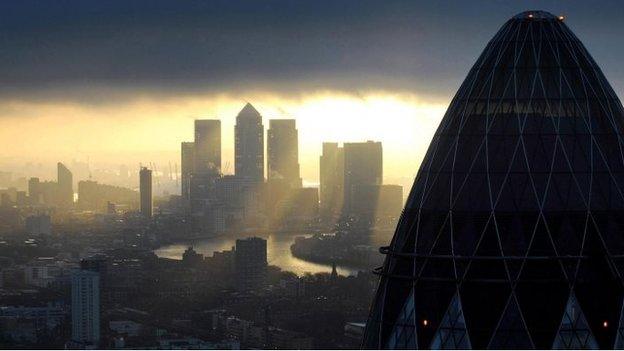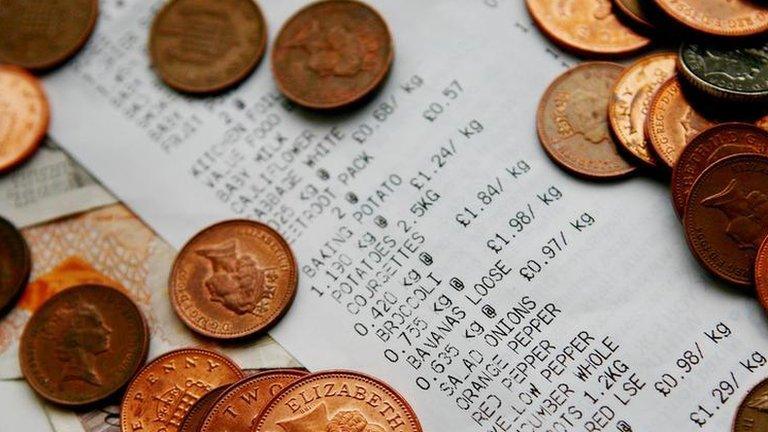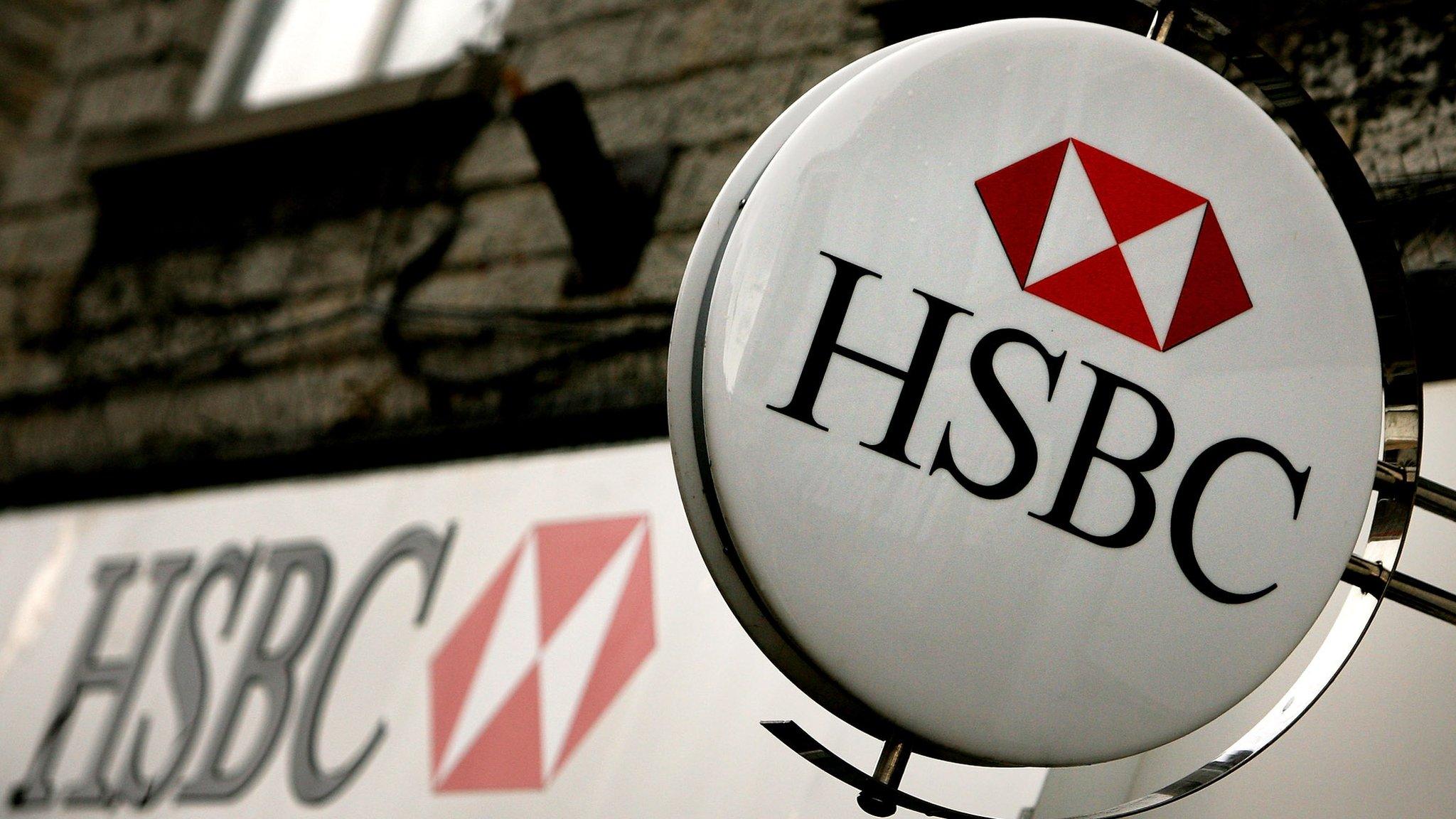Banks 'pay 60%' of profits in fines and customer payments
- Published

Britain's largest banks have paid 60% of their profits since 2011 in fines and repayments to customers, according to a report by accountants KPMG.
Costs including repayments relating to Payment Protection Insurance (PPI) and so-called interest rate hedging products cost banks £9.9bn last year.
It was a reduction of 8% from 2013, said KPMG.
The accountants analysed the results of Royal Bank of Scotland, Lloyds, HSBC, Barclays and Standard Chartered.
The total in penalties for the last four years was £38.7bn.
Banks have been repaying customers who didn't want, ask for or understand PPI - an insurance against missing loan repayments. Their PPI bill is now £24.4bn, according to consumer group Which?.
Profitability
Nine UK banks have reimbursed business customers to the tune of £1.8bn, external after selling them complex deals on interest rates they probably did not understand or were likely to cost them more than a regular loan.
Another source of worry for banks will be their return on equity, a profitability measure showing how much money they make for investors, says the report. It is currently below their cost of capital - what investors demand for the risk in investing in banks.
But a stronger capital base after tighter regulations forced them to raise money or keep profits means banks were in a "healthier shape," it said.
HSBC, Royal Bank of Scotland, Swiss bank UBS and US banks JP Morgan Chase, Citibank and Bank of America were all fined a collective £2.6bn by UK and US regulators for their attempts to manipulate foreign exchange rates.
- Published3 March 2015

- Published21 February 2014

- Published20 August 2013
